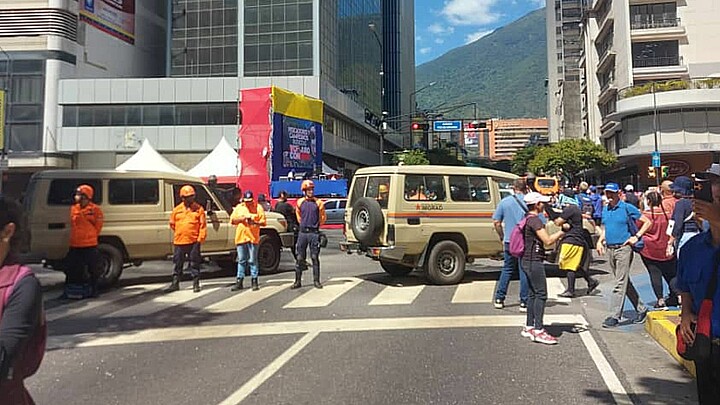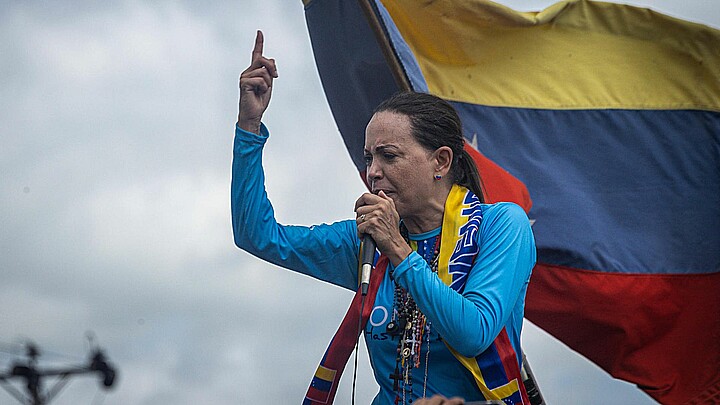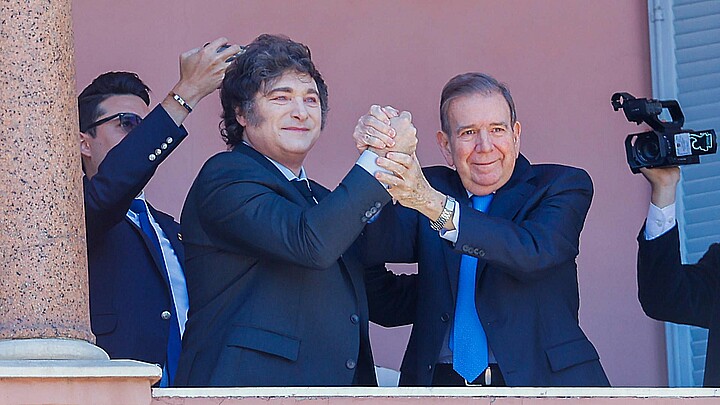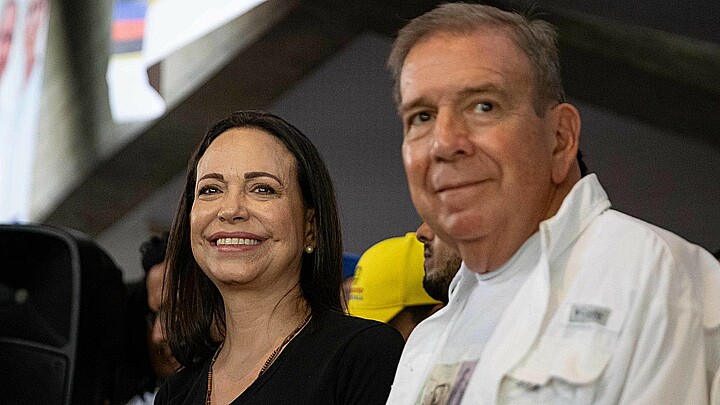Politics
Venezuelan opposition votes to keep Guaidó as interim president, but limits his powers
Guaido's role has been reduced to simply “defending democracy” and directing the protection of assets in foreign countries
January 4, 2022 1:33pm
Updated: January 4, 2022 1:33pm
Venezuela’s opposition legislative body voted late Monday to extend Juan Guaido’s mandate as the country’s interim president through the end of 2022, while also limiting his executive power — further hampering efforts to topple the regime of dictator Nicolas Maduro.
Opposition parties, following up on Dec. 27’s preliminary approval, voted to amend a governing statute in order to extend its own term for another year, while also leaving Guaido in place as its president.
“Our commitment to Venezuelans’ defense, the possibility of solutions to the crisis and international dialogue to achieve it was ratified today,” Guaido tweeted after the reform was approved.
But while Guaido, whose leadership was challenged by falling approval ratings and infighting amongst the opposition, has managed to hold onto power — his role has been reduced to simply “defending democracy” and directing the protection of assets in foreign countries, including upwards of $1 billion in gold stored at the Bank of London.
The 38-year-old opposition leader’s hold on power is shaky, however.
After the opposition first voted to retain Guaido as interim president on Dec. 27, several members of the opposition, which was ravaged in the Nov. 21 elections, publicly spoke out against him.
The classical liberal political party Vente Venezuela, led by former National Assembly Deputy María Corina Machado, issued a statement about Guaido’s continued appointment, citing concerns that the opposition leader was unable to oust dictator Nicolas Maduro from power.
Similarly, Julio Borges, the former foreign minister for Venezuela’s U.S.-backed interim government and a leading figure in the Democratic Unity Roundtable (MUD) coalition, announced his resignation earlier this month — citing frustration over Guaido’s inability to lead the opposition.
"The (interim) government makes sense as an instrument to get out of the dictatorship. But at this moment, in our way of seeing it, the interim government has been damaged," Borges said.
Guaido, however, remains confident in his ability to lead — citing the strong international support he continues to enjoy.
“The U.S. and allied countries reaffirmed for this year and next,” he told reporters at a press conference in Caracas when asked about foreign recognition last month.
Guaido first consolidated the opposition’s backing — along with that of several international governments — in January 2019 when he vowed to topple Maduro’s dictatorship.
Maduro, however, remains firmly in power and support for Guaido has fallen drastically from 61 percent approval in 2019 to 16 percent as of October 2021, according to Datanalisis surveys.
Although several countries, including the European Union, no longer recognize Guaido as interim president, U.S. officials have promised to back him in his struggle against the regime.










